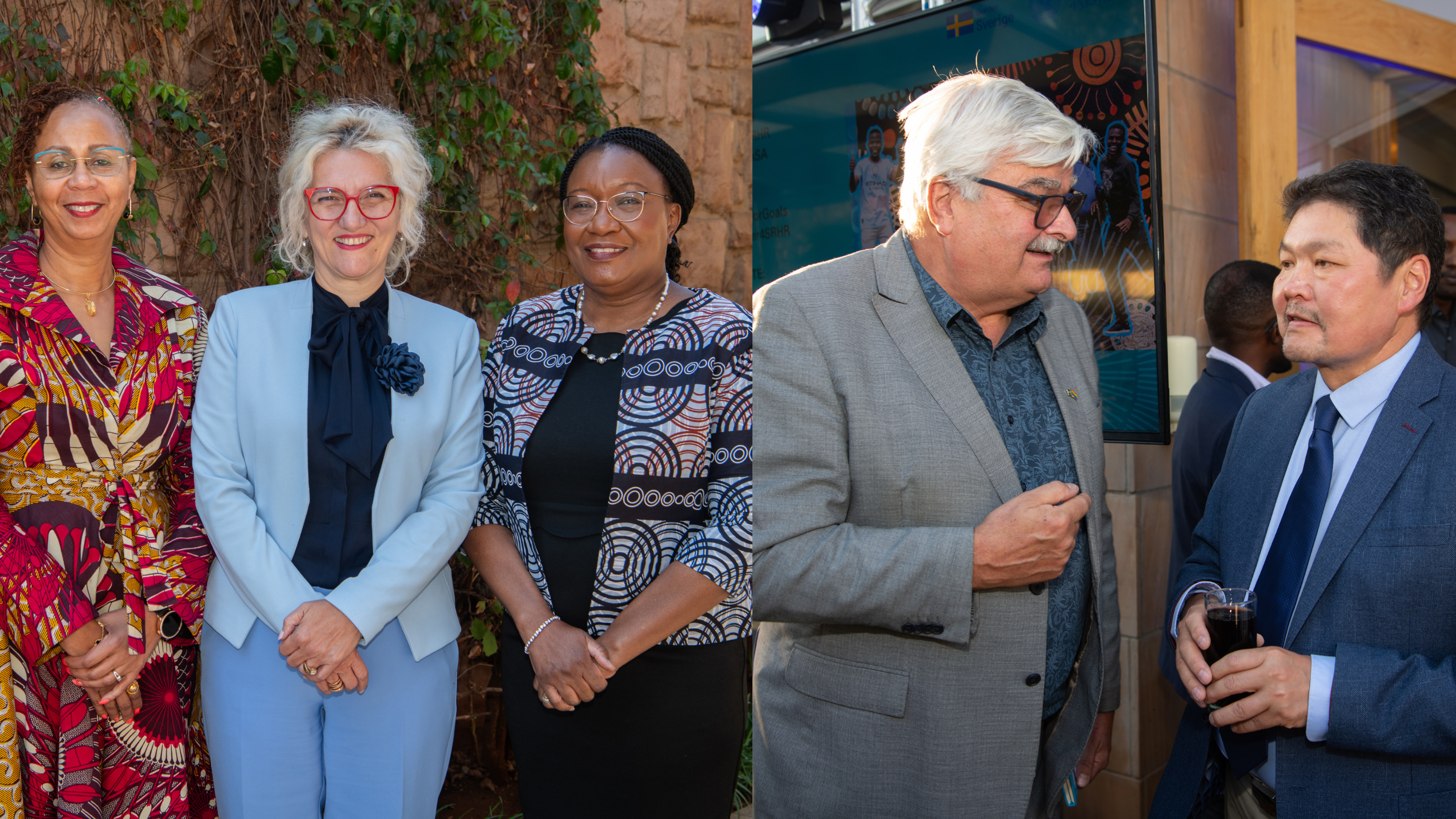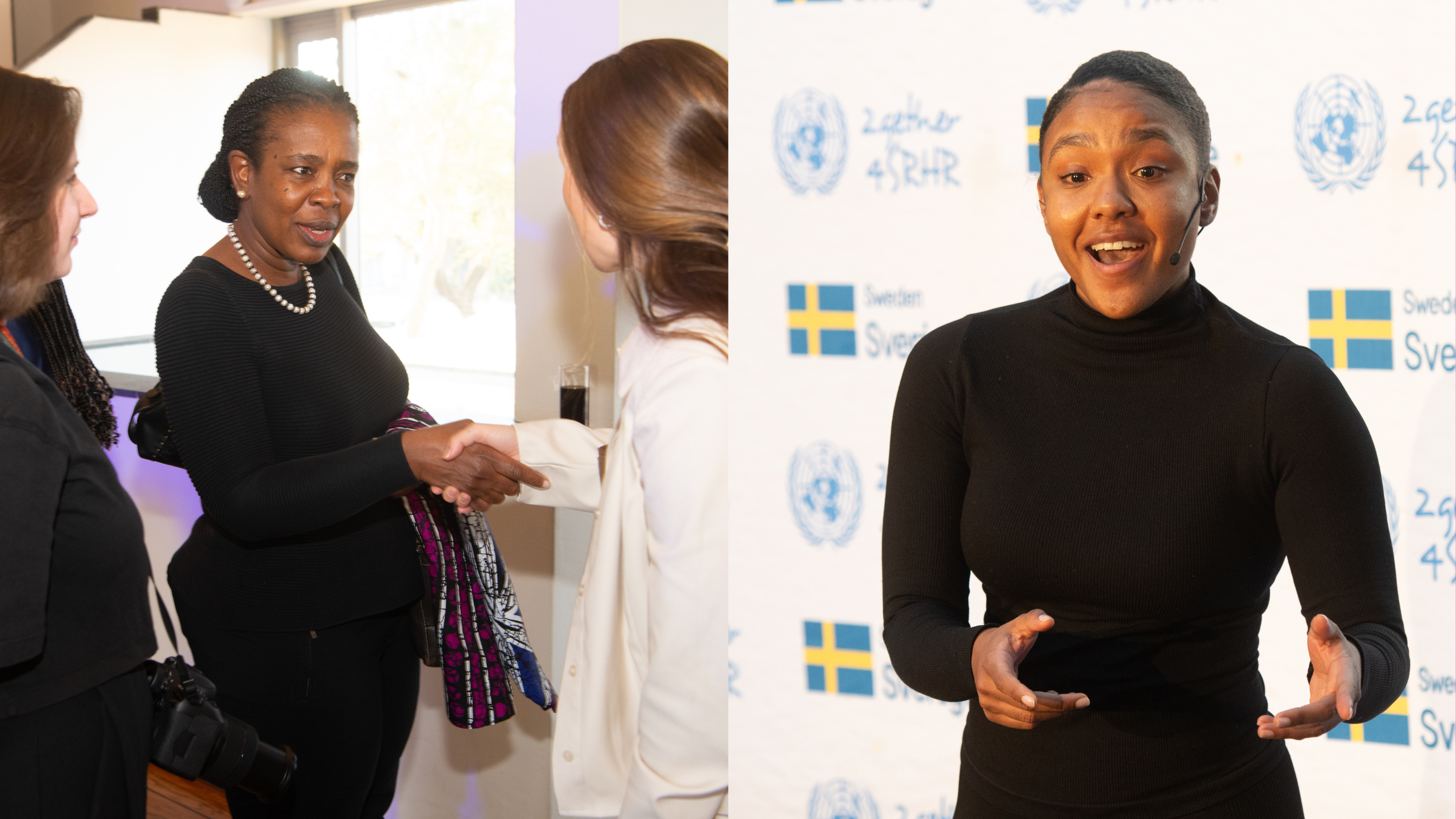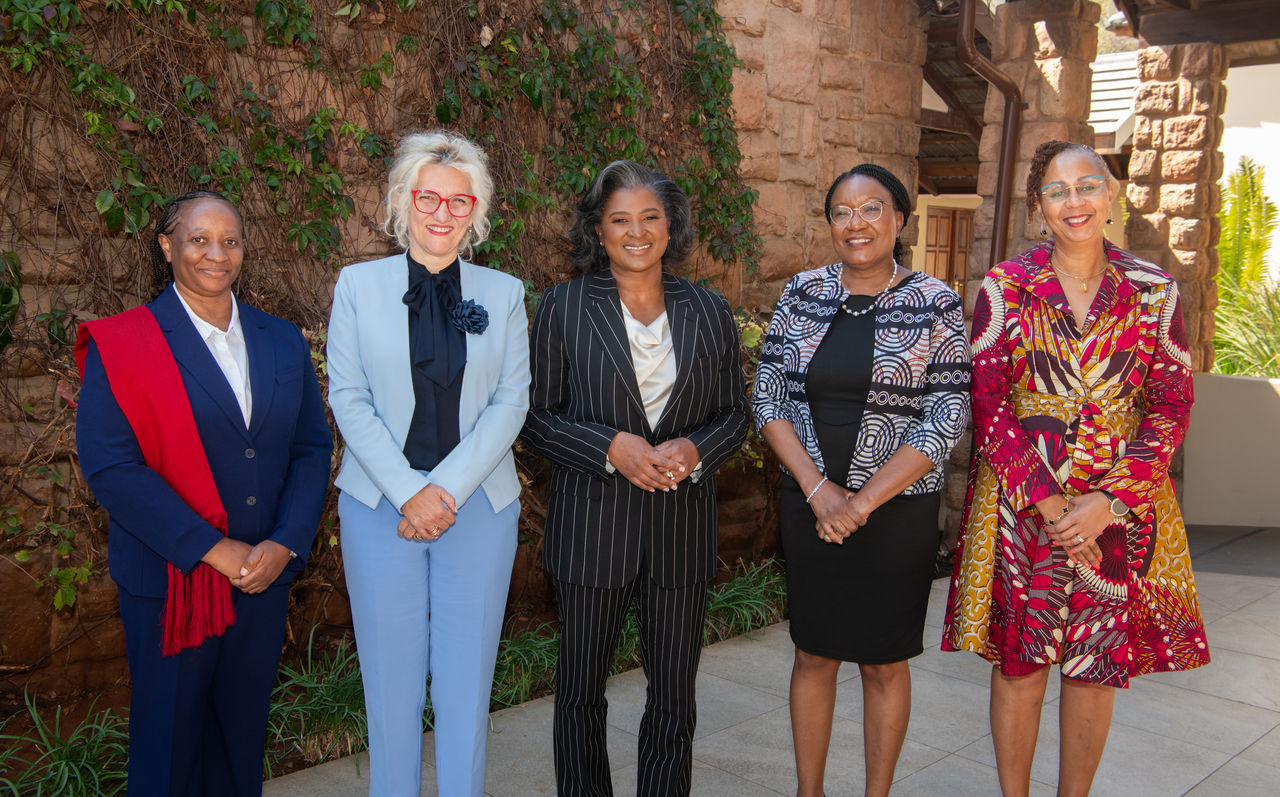“If you want to go fast, go alone. If you want to go further, go together” - this old adage encapsulates the journey and the results achieved by the impactful Joint United Nations Regional Programme, 2gether 4 SRHR, that brings together the combined efforts of UNAIDS, UNFPA, UNICEF and WHO to improve the sexual and reproductive health and rights (SRHR) of all people in East and Southern Africa. The programme is funded by the Government of Sweden.
Personal stories shared at a recent networking event held to release the results from Phase I of the programme spanning 2018 to 2023, served as powerful reminders ofhow collaborative initiatives can change lives. Rebecca, a 20-year-old peer educator from Uganda living with HIV is part of a peer education initiative supported by the
2gether 4 SRHR programme. Rebecca has become a beacon of hope in her community, providing vital sexual and reproductive health information while connecting young people to essential services like contraceptives and support to survivors of gender-based violence. Her dream of becoming a midwife is a shining example of how the programme empowers young people, transforming the lives of individuals and communities.
The networking event was hosted by H.E Hakan Juholt, Ambassador of Sweden to Botswana, Lesotho, Namibia, and South Africa, the Regional SRHR Team of Sweden for Africa, and the Regional Directors of UNAIDS, Ms. Anne Githuku-Shongwe; UNFPA, Ms. Lydia Zigomo; UNICEF, Ms. Etleva Kadilli; and WHO, Dr.Matshidiso Moeti. It also featured the presence of the former First Lady of Namibia, Monica Geingos and UN Resident Coordinator to South Africa, Mr Nelson Muffuh.
Participants included representatives from the South African Government, development partners, international financial institutions, senior leaders from the Southern African Development Community (SADC) and East African Community (EAC), regional forums of parliamentarians, the United Nations, civil society organizations, and academia.
Amplifying the role of Partnership for Progress
Ms. Eva Kadili, UNICEF Regional Director for East and Southern Africa, presented the programme’s achievements, highlighting its collaborative and rights-based approach. She shared five key achievements:
- Unified Regional Partnerships: 2gether 4 SRHR has fostered a “Delivering as One UN” approach, bringing together the expertise of the collaborating UN Agencies, in partnership with regional economic communities, regional forums of parliamentarians, governments, civil society and other UN agencies. This united effort has amplified the SRHR agenda in the region, particularly for marginalized groups, young people, and key populations.
- Advancing Legal and Policy Frameworks: The programme has influenced public discourse, enhancing lawmakers' and civil society’s understanding of SRHR. More than 60 laws, policies, and strategies have been strengthened, promoting inclusivity towards universal access to SRHR, while addressing stigma and discrimination .
- Strengthening Accountability: By working with partners to improve monitoring systems, including scorecards and community-led monitoring, 2gether 4 SRHR has ensured that progress on key SRHR indicators are effectively tracked and targeted responses strengthened , while documenting and celebrating successes.
- Tailored and Inclusive SRHR Services: The programme has enhanced access to integrated, quality SRHR services across 10 countries—Botswana, Eswatini, Kenya, Lesotho, Malawi, Namibia, South Africa, Uganda, Zambia, and Zimbabwe. Evidence-driven models have played a crucial role in supporting vulnerable groups, including adolescent girls, LGBTQI+ communities, and people with disabilities.
- Resilience Amid Humanitarian Crises: In the face of crises, including climate change, cholera outbreaks and the COVID-19 pandemic, the programme has strengthened the preparedness and responsiveness of the health system ensuring the continuity of SRHR services during crises.. Resilience building efforts are being strengthened through costed action plans across 22 countries, ensuring preparedness for future emergencies.

L) Chinwe Ogbonna UNFA Deputy Regional Director with event attendees (R) and actress Kim Adnonis performing an excerpt from "He Had It coming"
Looking Ahead and Beyond
As 2gether 4 SRHR embarks on Phase II, it marks a new chapter in the journey toward a more inclusive and equitable future for the region. The programme’s continued focus on collaboration and innovation will be essential in ensuring that all people in East and Southern Africa have the opportunity to realize their sexual and reproductive health and rights.
For more information on the 2gether 4 SRHR Joint Programme and its ongoing initiatives, you can read the full programme document [here].
